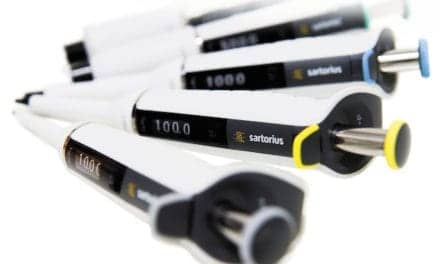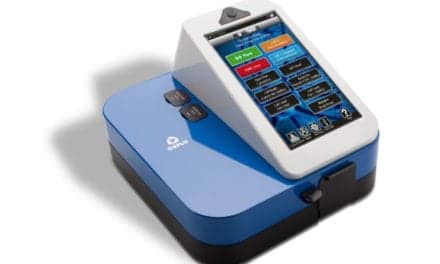Cepheid, Sunnyvale, Calif, has received FDA clearance for expanded claims for the company’s Xpert Carba-R, the first FDA-cleared test for the detection of carbapenem resistance genes of multidrug resistant “superbugs.”
Following initial clearance in March for the detection and differentiation of carbapenemase genes in pure bacterial isolates, the latest clearance extends use of the assay to the analysis of direct rectal swab specimens.
The infection control aid tests patient specimens to detect specific genetic markers associated with bacteria that are resistant to Carbapenem antibiotics. Carbapenem antibiotics are widely used in hospitals to treat severe infections. These resistant organisms are commonly referred to as Carbapenem-resistant Enterobacteriaceae (CRE), and have been reported in almost all states within the United States.
“By using a specimen taken directly from a patient to test for the presence of genetic markers, hospitals can more quickly identify these dangerous bacteria resistant to certain antibiotics,” says Alberto Gutierrez, MD, director of the Office of In Vitro Diagnostics and Radiological Health within FDA’s Center for Devices and Radiological Health.
Current methods to identify colonization with CRE or other resistant organisms rely on growing bacteria from fecal material in cultures, which are then subjected to antimicrobial susceptibility testing to determine their susceptibility to antimicrobial agents. Bacterial culture methods and susceptibility testing may take up 4 four days, and additional testing is often required to confirm the presence of carbapenemase, an enzyme that inactivates carbapenem antibiotics. The Xpert Carba-R assay tests specimens taken directly from patients—usually obtained by rectal swabs—for the presence of five different genetic markers that are associated with carbapenemase, the enzyme produced by CRE.
“The number of global incidents associated with these deadly bacteria is surging, and is frequently associated with high morbidity and mortality, in addition to increased hospital costs,” says David Persing, MD, PhD, chief medical and technology officer at Cepheid. “Xpert Carba-R delivers a highly accurate result in as little as 48 minutes, enabling clinicians to assess high-risk patients for colonization status at or prior to admission, and to enact full preventive measures as necessary to reduce the risk to the patient, the broader patient population, and hospital staff. In contrast, traditional enriched culture methods typically take 3 to 5 days.”
Although the assay tests for the most prevalent carbapenemase genes associated with resistance to carbapenem antibiotics, it does not detect the bacteria, carbapenemase activity, or other possible non-enzymatic causes of carbapenem resistance. The assay tests only for genetic material.
FDA’s decision to provide clearance was based on data from two clinical studies. A prospective study used rectal swabs from 755 patients in hospitals or long-term care facilities to compare results from the Xpert Carba-R assay with results from reference cultures and automated real-time polymerase chain reaction sequencing. A second study designed to test the clinical performance of the Xpert Carba-R assay used 432 rectal swabs that were artificially prepared with specific concentrations of bacteria containing the genes detected by the test. The results of these studies demonstrated similar performance between the Xpert Carba-R assay and culture method.
According to FDA, labs should continue to perform standard bacterial culture in conjunction with the test. In addition, concomitant cultures are necessary to recover organisms for epidemiological typing, antimicrobial susceptibility testing, and for confirmatory bacterial identification.
For more information, visit AACC booth 1027 or Cepheid.






